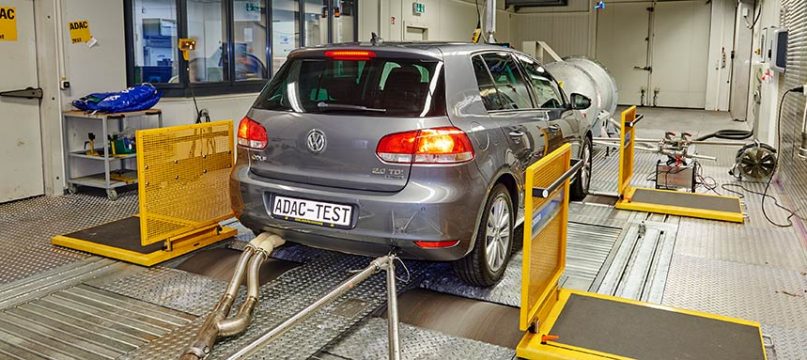
Diesel passenger cars equipped with state-of-the-art emission control technology generate very low amounts of NOx emissions across the whole operational range and are already clearly below the current Euro 6 NOx limit of 80mg/km. This is the conclusion of an evaluation of 17 top-selling diesel vehicle models from various makers and vehicle segments tested for exhaust emissions in the Green New Car Assessment Programme (Green NCAP). In addition, the exhaust emissions of 107 current diesel vehicles tested in ADAC Ecotest were analysed. Thus, the results obtained are representative for new vehicles type-approved for sale in Europe since 2018.
The current test campaign was initiated in response to the relentless debate about the viability of internal combustion engines. The stricter emission limits expected in the framework of the future Euro 7 emissions standard were another motivation. The standard currently governing exhaust emissions from vehicles is Euro 6. The EU Commission is now preparing the next level of the standard. The legislative proposal is expected in late 2021. The Euro 7 emissions standard could be enacted as soon as 2025.
The Green NCAP metrics from the lab test showed average NOx emissions of 52mg/km across all diesel models tested. Both in the cold and warm engine tests at 14°C and in the motorway cycle, the average NOx values (60mg/km) were below the current Euro 6 NOx limit of 80mg/km. Only cold-starting at -7°C still results in values exceeding the limit. The road tests for RDE also confirmed the low NOx lab values.
The ADAC Ecotest results tell a similar story. The progress in terms of emission reductions from the Euro 6d-TEMP to the Euro 6d standard is made strikingly clear. On average, NOx emissions were reduced yet again by 30% to levels of merely a few milligrams in the best diesel vehicles.
Progress in terms of reductions in air pollutants is evident and important. All the same, ADAC strongly advocates the further development of internal combustion engines with a view to achieving climate-neutrality, which requires adequate incentives. In the future, e-fuels will allow new vehicles equipped with internal combustion engines to be climate-neutral. Since reducing CO2 emissions in the passenger car population is a pressing and prominent necessity, investments in the production of alternative carbon-neutral fuels are also required.
Please see here ADAC’s detailed analysis in German.
Sources : ADAC